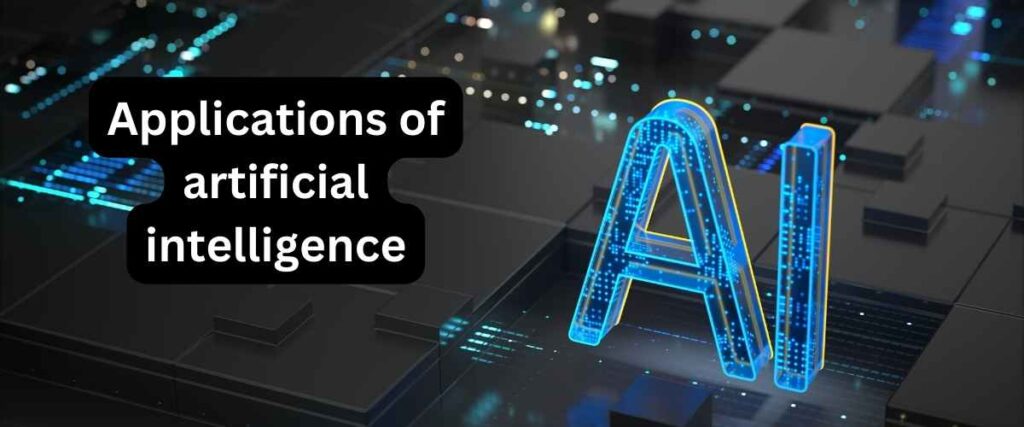Artificial intelligence (AI) has witnessed remarkable growth and acceptance, permeating virtually every industry. Its applications have transformed the way businesses operate and how individuals interact with technology. From social media platforms to healthcare and automotive industries, AI has proven its versatility and potential. In this article, we will delve into the top 10 real-world applications of artificial intelligence, shedding light on the significant contributions it has made across diverse sectors.

Internet and E-commerce:
In the realm of the internet and e-commerce, AI has brought about a multitude of advancements, revolutionizing user experiences and enhancing business capabilities. Search engines now employ AI algorithms to deliver more accurate and relevant search results, ensuring users can easily find the information they seek. Furthermore, AI-powered chatbots and virtual assistants have become prevalent in the e-commerce industry, providing personalized customer support and streamlining the online shopping experience.
Social media platforms have also leveraged AI to their advantage. AI algorithms are employed to create social media posts, draft and target social ads and automate content monitoring. For instance, Facebook’s picture recognition tools have evolved to allow users to browse photos without relying solely on tags or nearby information. Twitter utilizes AI to recommend personalized tweets to users, aiming to provide the most relevant content for an individualized experience. Instagram utilizes artificial intelligence to improve user experience, filter spam, and enhance the effectiveness of targeted advertising.
The integration of AI in e-commerce has resulted in significant advancements as well. Personalized product recommendations, based on AI’s analysis of massive datasets and consumer preferences, have become more precise, leading to increased customer satisfaction and conversion rates. AI also assists in tackling challenges such as credit card fraud and fake reviews. By analyzing usage patterns and customer behavior, AI algorithms can help reduce the occurrence of fraudulent transactions and identify fake reviews, enhancing trust and security in e-commerce.
Healthcare and Medicine:
Artificial intelligence has immense potential in the healthcare industry. It aids in areas such as diagnostics, drug development, personalized medicine, and patient care. AI algorithms can analyze medical images, identify patterns, and assist in the early detection of diseases. Moreover, AI-powered chatbots and virtual assistants can provide 24/7 patient support, answer basic medical queries, and even triage patients based on their symptoms.
Automotive Industry:
The automotive industry has embraced artificial intelligence to enhance safety, efficiency, and autonomous driving capabilities. AI-powered systems in vehicles can analyze sensor data in real time, detect obstacles, and make split-second decisions to prevent accidents. Companies like Tesla have successfully implemented AI algorithms to develop advanced driver assistance systems, such as autopilot features, that enhance the overall driving experience.
Agriculture and Farming:
AI has proven beneficial in the agricultural sector by improving crop yield, optimizing resource usage, and enhancing overall productivity. AI-powered systems can analyze soil conditions, monitor crop health, and detect pests and diseases at an early stage. This allows farmers to take proactive measures and make data-driven decisions to optimize their farming practices.
Gaming and Entertainment:
Artificial intelligence has significantly impacted the gaming industry by creating immersive experiences and intelligent non-player characters (NPCs). AI algorithms can simulate human-like behavior, adapt to player preferences, and enhance game design and testing processes. Additionally, AI-powered algorithms can predict player behavior, leading to dynamic and personalized gaming experiences.
Robotics and Automation:
Robots powered by AI have the potential to revolutionize various industries, including manufacturing, logistics, and healthcare. AI enables robots to perform complex tasks, adapt to different environments, and interact with humans safely. From assembly line automation to surgical robots, AI has facilitated advancements in robotics, making processes more efficient and reducing human error.
Conclusion:
Artificial intelligence has emerged as a powerful tool across various industries, including the Internet and e-commerce sectors. Its applications in search engines, social media platforms, and personalized shopping experiences have transformed the way users engage with technology and businesses operate. With the constant advancements in AI, we can expect further innovations and improvements in efficiency and user engagement in the Internet and e-commerce sectors.